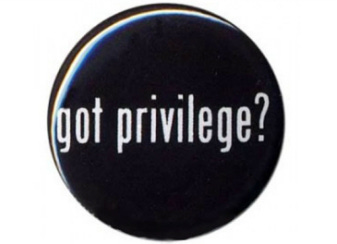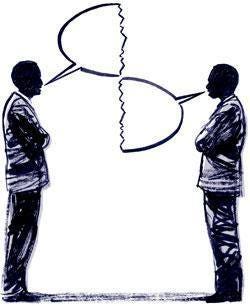Below is quite an old piece I wrote about anarchism and identity politics when I was still living in Essex and to a certain degree, still active in London. That shows you just how old this article is! For a variety of reasons, this post was unpublished some time ago and since then, has been gathering some metaphorical dust on my laptop. I’ve given this a read through and by and large, what I wrote is still something that, with a few caveats here and there, I would still largely stand by. In the interests of having an informed debate about the issues raised, I’ve decided to re-post this piece. Let’s see what happens…
Dave A
Working Class Anarchism versus Middle Class ‘Identity Politics’
There’s a perception that anarchism has little to offer working class people. What we’re trying to do is to develop a way of getting anarchist ideas across to people in a jargon free way that they can relate to and start to act upon.
It may be a subjective feeling that we have but we feel that there are more barriers than there need to be in achieving our aims. One of those barriers is the polarised debate over identity politics and working class anarchism. What we want to do with this pamphlet is start the process of identifying those barriers and then removing them.
There are pressing reasons why we need to have that discussion and move forwards. Out here in Essex, we’re striving to present anarchist ideas to people who are fed up with the way things are going and are open to a political alternative. There are other groups out in Essex seeking to reach people who feel alienated from the political system as it is – the problem is that they are off to the far right! This is why there’s an acute sense of urgency about what we do .
CLASS
Coming from and operating in Essex, some people may mistakenly get the impression that when I talk about the working class, I’m actually talking about the white component of it. I would like to debunk that notion…
What is the ‘working class’? Pretty much anyone who doesn’t have independent financial means and has to sell their labour in order to survive or is dependent on an increasingly vicious ‘benefits’ system. In other words, the majority of us, regardless of ethnicity, nationality or creed. Suffice to say, because of the ever changing nature of capitalism and the exploitation it can offer, the working class is constantly being formed and re-formed in response to this. As the working class is the majority class, by definition, it will be heterogeneous. Anyone who attempts to sub-divide us by ethnicity, nationality or creed needs to be shown the door pronto!
Obviously, when analysing working class composition and formation, there are times when some distinctions will have to be made between various sections of that class. That’s fine if it’s done with the recognition that we’re talking about a dynamic process and that there are no real fixed categories within our class.
Yes, there will be some sections of our class with more in the way of privilege than others – that’s how divide and rule in a capitalist society works! Yes, there are sections of the working class in the UK who are white and who have been given enough concessions from the elites to basically keep the lid on the situation. That will last as long as the elites can afford those concessions. When the shite really starts to hit the fan, people who once held well paid, highly skilled jobs who end up on the scrap heap will notice the narrative will start to change from ‘hard working families’ to ‘feckless scroungers who refuse to own their problems.’
Class is not an identity. It’s determined by economic circumstances and prevailing power relations in society. Some people do talk about a working class ‘identity’. Given how heterogeneous our class is, people who talk about ‘identity’ in the working class are generally picking out one section to suit an agenda of divide and rule.
There are working class communities and bonds of solidarity forged through collective struggle. These are dynamic processes closely tied to the current state of capitalist exploitation of our class so those communities and bonds are not static phenomena and will change. What is noticeable is how increasing precarity in housing tenure and employment conditions is wrecking what sense of community is left and making it harder than ever to build bonds of solidarity in the workplace.
LOADED TERMS OR MERELY TOOLS?
Privilege theory
At the heart of privilege theory is the idea that oppression works through a series of unearned advantages enjoyed by those who do not suffer a particular oppression.
It is possible to talk about a degree of white privilege within the working class but that needs to be done in the context of what’s happening to all the working class – nuance is needed in this discussion.
On being asked to acknowledge my white privilege… To be honest, this question and the response should be a no brainer. I can walk down the street and not have to fear the appearance of an immigration van, detainment and possibly deportation. However, if the balance of forces were favourable with the local community resisting, I would offering what solidarity I usefully could! I can walk down the street and not have to fear being arbitrarily stopped, arrested, possibly assaulted and killed by the cops simply because of my skin colour.
When you take a step back and look at the situation objectively, it’s easy for me as a mature white bloke to see that in comparison to many other groups in society, I do indeed have a degree of privilege. Looking at it logically, what is termed as privilege theory is simply looking at where various groups stand in relation to the power structures that currently inform the way society is structured and run for the benefit of the few. It also means acknowledging how divide and rule works and how I’ve been a beneficiary of that.
Giving people being screwed over by multiple oppressions a voice shouldn’t be a box ticking exercise – it should be a learning experience for all involved. People who are being oppressed on multiple fronts generally have a pretty sharp perception of what’s wrong with the social, political and economic order as it stands and what needs to be done to change things. Listening to them talk not just about their oppressions but how they fight back against them is a learning experience. In other words, let people more oppressed than you have a voice because more often than not, they have a valid contribution to make to the struggle.
The struggles of cleaners, delivery workers and others across London is a case in point. In London, these sectors are primarily operated by migrant workers who refuse to accept their allotted role of cheap, disposable labour and they’re vigorously fighting back against that with demands for decent pay and to be respected for what they do. Somehow, while they will acknowledge the multiple oppressions they experience, I don’t think they will recognise the hierarchy of victimhood that some proponents of privilege theory describe.
Intersectionality
noun: intersectionality; plural noun: intersectionalities
the interconnected nature of social categorizations such as race, class, and gender as they apply to a given individual or group, regarded as creating overlapping and interdependent systems of discrimination or disadvantage.
“through an awareness of intersectionality, we can better acknowledge and ground the differences among us”
Simply talking to working class people on the doorstep brings home the fact that while people obviously experience issues because of their class, other aspects such as sexual discrimination, disability and ethnicity also have an impact as well. It should be a matter of common sense to recognise that these issues overlap with each other and that a bit more nuance is needed when coming up with an analysis of a situation.
An analysis which highlights the levels of discrimination and oppression people endure should be getting used in a way that draws different struggles together. It’s certainly something that can be used to draw attention to the cynical use of divide and rule and to highlight the way that various oppressions overlap each other and why struggles against them should strive to achieve unity while acknowledging the different experiences of the various groups involved. The hope being that it will generate solidarity between a range of groups on the basis of all for one and one for all.
Over a decade ago when I was in the Independent Working Class Association (IWCA) and learning the ropes, I went up to Oxford to help out the Blackbird Leys branch in one of their local election campaigns.
In one of the wards the IWCA was contesting, they picked a candidate who was black, a woman and a single mother. The IWCA weren’t doing this as a politically correct box ticking exercise because a) that was never their style and b) they always wanted the best candidates. They knew that the candidate was, despite all of the shite she had to deal with, a very effective campaigner in her neighbourhood and on meeting her, it soon became clear she would be a very good candidate as well. She was a brilliant candidate and was very narrowly beaten by a Labour Party machine that was pulling out all of the stops to defeat her.
The point is that with this candidate, there was an instinctive understanding that with her situation, as well as class, there were issues of race and her sex in the mix as well. This was an example of grassroots intersectionality that was instinctively understood and acknowledged and didn’t need fancy language to describe the situation.
‘Identity politics’
noun: identity politics
a tendency for people of a particular religion, race, social background, etc., to form exclusive political alliances, moving away from traditional broad-based party politics.
The more I think about this term, the more I’m coming to the conclusion that it’s moving past its use by date. The above, very simplistic definition was useful when the term identity politics came into common usage, although I would question the either / or take that some people have on identity politics.
A struggle of a particular group, for example, black women in the US doesn’t take place without a close relationship to other struggles – in this instance, there would be a very close relationship with the class struggle as well as the one based around gender. Which is precisely why we like intersectionality because it offers a way of understanding how all of these different struggles relate to each other.
Identity politics came into use as a phrase when there was still a strong sense that collective struggle was the way forward. It was acknowledged that there were instances where some groups being screwed over in multiple ways would, for strategic and tactical reasons, have to collectively fight for their rights based on the identity created by their oppression.
Where the problems appear to be arising with identity politics is with the growing level of atomisation in society, the consequent decline of collective struggle and the mistaken notion that change can be brought about by individuals asserting their rights. This is running concurrently with the marginalisation of working class voices and representation across the board from politics and music through to the arts.
It also comes at a time when it feels as though middle class influence in activist circles is dominant. It’s the middle class mindset that change can be brought about at the level of the individual that has changed perceptions of identity politics. Let’s face it, middle class activists have the social capital and leverage to effect change and improve their position – that’s something us mere plebs don’t have!
Identity politics appears to have been co-opted by middle class activists and in the process has changed into something completely different. There’s a perception that it’s increasingly about the individual with any notions of collective struggle being relegated to the margins.
Which is why I’m coming to the conclusion that it’s a redundant term that’s lost its meaning. For the sake of clarity in the discussion about how we move things forward, we need to come up with some more precise, understandable terms whose meanings are harder to dispute or co-opt.
Useful tools, but…
Intersectionality and privilege theory are useful analytical tools that when applied properly, explain the structure of the oppressive systems we’re battling against. They’re like any tool – they have to be used properly to get the right outcome. A hammer in the right hands is an incredibly useful tool – in the wrong hands it can do a heck of a lot of damage! The problems arise when intersectionality and privilege theory are appropriated by liberal elements who have more or less given up on attempting any form of radical systemic change and who implicitly or explicitly accept things as they are and effectively end up asking people to be nicer to each other.
The result of this is that privilege theory ends up creating a hierarchy of oppression where those who are deemed to be less oppressed are expected to allow those who are more oppressed to have more of a say, not because those who are more oppressed might have some useful insights into the power structures that are screwing them but simply in order to be nice to them. This is when intersectionality and privilege theory end up as a self-defeating, patronising form of identity politics that does nothing to bring about change and effectively puts people in a box they can’t move out of.
TALKING PAST EACH OTHER
Does the discussion around class, privilege theory, intersectionality and identity politics have to be so loaded, emotive and ultimately divisive?
With regard to privilege theory, a lot of the issues are to do with the context the discussion about it is taking place in. It’s also down to whose involved in that discussion and what the motives are for having it. When it’s part of a discussion that’s aimed at sharpening up our understanding of what’s happening to our class and why some sections of it have more going for them than others, if that’s the context it’s taking place in, then an understanding of privilege theory certainly has its uses.
However, if it’s a working class activist who happens to be white being asked to acknowledge their white privilege in the middle of a meeting about working class anarchism versus middle class identity politics, it could well be taken the wrong way. We live in a fractured, increasingly atomised society and if we’re honest with ourselves, that is reflecting itself in the anarchist movement. As a consequence, when someone is asked to acknowledge their privilege, it could be seen as an attack on who they are as opposed to a broader discussion about what’s happening to our class.
Although at one level, we know that privilege theory is a tool for structural analysis of class composition and formation, at another level, being brusquely asked to ‘check my privilege’ can be downright annoying! It feels like an attempt to impose a hierarchy of privilege with a pecking order of whose voice carries the most weight and who should pipe down and keep quiet.
When this happens, it feels that we’re not trusted to know when we should acknowledge that there are people whose experiences do legitimately carry more weight and who we can learn from. When we get to this point, trust and respect within the movement start to breakdown.
I have to admit there are times when I think that polarising the discussion in these terms isn’t helping as it’s leading to the creation of two firmly entrenched camps who are talking at or past each other rather than with each other. This is exactly what the divide and rule merchants want so – why do some anarchists end up falling for this?
While we understand the place privilege theory and intersectionality have in our internal discussions, success in trying to craft a plain speaking, jargon free language to communicate those concepts to the wider audience we’re trying to reach out in Essex has, to date, eluded us. As much as we’d like, there’s no way of entirely avoiding the ongoing debate within the movement over what’s been termed middle class identity politics versus the creation of the working class anarchism we want to develop. Which is why I’ve written this pamphlet in an attempt to move that discussion forward onto a more nuanced level while at the same time, devoting what time and energy I can spare to helping to build a working class anarchism.










Very sensible piece. Particularly on the divide-and-rule dynamic in class analysis. As for the 'middle class', they are the problem and always have been. It is, for the most part, a false and stupid identity that serves as an effective buffer between the owning class and the working class.
I can thoroughly recommend this book: https://repeaterbooks.com/product/here-be-monsters/
And Rhyd's Substack: https://rhyd.substack.com/